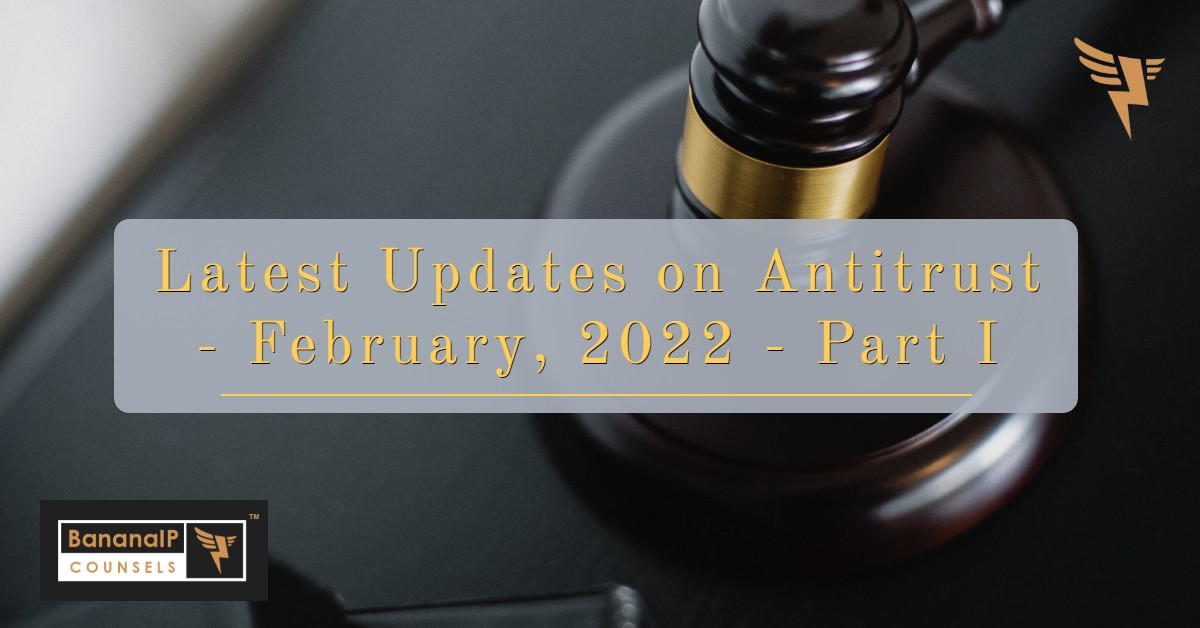This is a rundown of last week’s news updates on Antitrust:
CCI Imposes Heavy Penalties On 6 Tyre Manufacturers For Cartelization
The Competition Commission of India, the country’s antitrust watchdog, recently passed a cease and desist order and imposed heavy penalties on Apollo Tyres, MRF, CEAT, JK Tyres, Birla Tyres and Automotive Tyre Manufacturers Association for cartelization. It was alleged that all the above-mentioned tyre manufacturers together controlled 90% of the tyre production in India and were engaged in price parallelism under the aegis of the Automotive Tyre Manufacturers Association (ATMA). The CCI concluded that the ATMA platform was used by tyre companies to resort to anti-competitive activities and not merely to protect the legitimate interests of the members of ATMA.
Department Of Justice and 35 States Bring Antitrust suits against Apple
Following the settlement of the lawsuit between Epic Games and Apple, the question of the legality of Apple’s “walled garden” approach to its App Store and the fairness of its mandatory fees was left open to further judicial examination. Epic has appealed that portion of the Court’s ruling, and is now receiving the support of the DOJ which argues that the judge’s ruling applied the provisions of the Sherman Act incorrectly and did not properly address how close to a monopoly status Apple presently sits in the standards created by antitrust laws. Further, 35 states argue that Apple’s unilateral contracts pushed on developers are fundamentally anti-competitive, and that there exist viable less-restrictive alternatives that would not substantially hurt Apple.
Google disputes ‘gamesmanship’ accusation in advertising antitrust case
In an advertising antitrust case instituted in the United States, the plaintiffs accused Google of “gamesmanship and delay” and contended that Google has not provided all the documents that the company, in related litigation, gave to a group of states that sued Google in 2020 over alleged antitrust violations concerning advertising technology. Google’s lawyers contended that the plaintiffs were demanding documents which were not relevant to the present case because they concern different subjects such as Google’s search engine and mobile operating system.
Authored by Rohan Jacob (Associate) and Parikha Rathi (Intern).
About BananaIP Counsels Trademark Attorneys
This Antitrust News Bulletin is brought to you by the Trademark/Copyright, and IP Transactional Strategy Divisions of BananaIP Counsels, a Top ranked IP Firm in India. BananaIP Counsels’ trademark attorneys are among the leading experts in the field. If you have any questions, or need any clarifications, please write to contact@bananaip.com with the subject: Antitrust News.
The weekly intellectual property law news initiative is a part of their pro bono work and is aimed at spreading awareness about intellectual property and allied laws. You are free to share the news with appropriate attribution and link back to the source.
Disclaimer:
Kindly note that the news bulletin has been put together from different sources, primary and secondary, and BananaIP’s reporters may not have verified all the news published in the bulletin. You may write to contact@bananaip.com for corrections and take down.



